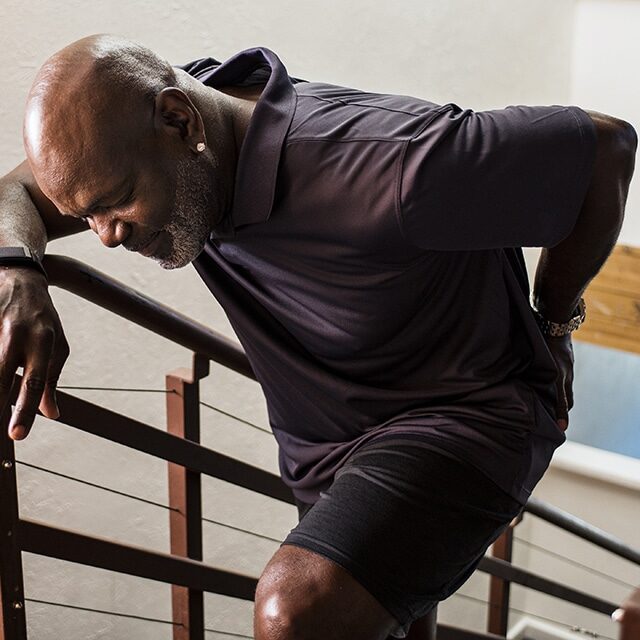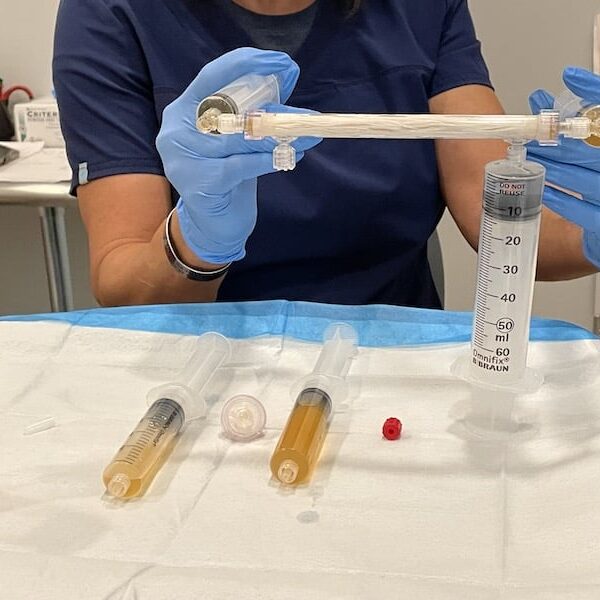
Lower back pain is a widespread issue that can range from a minor inconvenience to a chronic condition that significantly impairs your daily life. Even minor muscle strains can lead to persistent pain and limited mobility for some individuals. Fortunately, advancements in regenerative medicine offer alternatives to surgery for managing lower back pain.
Lower back pain can be debilitating, but it doesn’t have to dictate your life. QC Kinetix in Nashville offers innovative regenerative medicine treatments that provide genuine relief without surgery. Don’t let lower back pain limit your quality of life any longer. Explore your options and take the first step toward a pain-free future.
Lower back pain is a prevalent problem that affects millions of people and is a leading cause of missed workdays and medical visits in the United States. Over 80% of the U.S. population is estimated to experience lower back pain at some point. This pain can manifest as a dull ache, a sharp stabbing sensation, or even a burning feeling that radiates down one or both legs. Some individuals may also experience numbness, muscle tightness, or weakness in the lumbar muscles, making it challenging to perform everyday tasks.
Lower back pain is categorized as acute or chronic, depending on its duration and underlying causes. Acute lower back pain typically arises suddenly due to an injury, muscle spasm, or an accident. Exercise, sports, falls, or vehicular accidents can trigger acute pain. On the other hand, chronic lower back pain is often associated with underlying medical conditions such as arthritis, scoliosis, spinal stenosis, piriformis syndrome, sciatic neuritis, or repetitive stress injuries.
Lower back pain can have various causes, ranging from serious conditions like a slipped disc to less severe issues like poor posture or overused muscles. Regardless of its origin, QC Kinetix in Nashville takes lower back pain seriously and is dedicated to helping individuals regain their quality of life.

While some cases of lower back pain may require surgical intervention, many individuals can find relief through non-surgical treatments. Steroids and anti-inflammatory drugs are commonly prescribed but may not always provide satisfactory results. Instead, people often seek alternative therapies like massage, chiropractic care, acupuncture, transcutaneous electrical nerve stimulation (TENS), and yoga.
QC Kinetix in Nashville specializes in regenerative medicine, offering innovative non-surgical treatments for lower back pain. Our therapies harness the body’s natural ability to heal and repair itself, providing long-lasting relief from persistent pain. Our primary goal is to help you regain a full range of motion, improve your sleep, and enhance your overall quality of life.
If you have been advised that surgery is your only option, it’s worth exploring alternatives like regenerative medicine before proceeding. Rather than merely masking the pain, our treatments target the root cause, allowing your body to heal effectively and efficiently.
To better understand the effectiveness of our regenerative treatments, take a moment to read testimonials from our satisfied clients. Their stories highlight the transformative power of non-surgical solutions for lower back pain.
If you’re seeking relief from lower back pain and want to learn more about our treatment options, we invite you to schedule a free consultation. You can do so at the top of this page or by calling (844) 809-PAIN (7246). Discover how non-surgical regeneration can improve your life and help you return to the activities you love.
This completely depends on your specific condition and its severity, which we cover in detail with you at your complimentary, no-obligation consultation.
While we have seen patients have long-standing relief after their initial injection series, this does vary from patient to patient depending on many factors, including how active a patient continues to be. Osteoarthritis is a chronic, degenerative condition and while we feel that regenerative medicine protocols are an outstanding way to combat the pain of this degenerative process, these treatments are not a cure for this condition.
This is an extremely important question. In our opinion, success isn’t just a matter of having less overall pain. We strive to improve your overall quality of life. Sure, this includes decreasing your pain levels, but we also want to see things like improved function, range of motion, improved sleep patterns, taking fewer medications (or lower doses), and being able to enjoy life more. Instead of just looking at a simple pain scale number, we focus on quality-of-life metrics. In this light, the vast majority of our patients have success with regenerative medicine for their knees.
Class IV laser therapy is a helpful adjuvant to the regenerative medicine therapies we use. When used alone, it is useful for some temporary relief only. We utilize it in combination with our additional protocols to improve the tissue environment.
A series of the biologic regenerative medicine therapies; consideration of appropriate knee bracing, if warranted; and physical therapy after the initial treatment series.
When left untreated, sports injuries can lead to local scarring of tissue. The chronic pain of sports injuries can also put undue stress on other parts of the musculoskeletal system that can lead to pain in other areas as well.
The pain due to muscle tears, tendon injuries, ligament injuries, bursitis, and more.
There are many ways to work on low back pain because it is a very complicated problem with many potential causes. While we use our regenerative medicine protocols successfully with many low back pain issues, we also strongly encourage things like physical therapy, Pilates, and yoga to help enhance the results you can obtain from our protocols.
There are times when one or both are appropriate to use. We discuss this in detail with you when you begin your plan of care with us.
The pain related to osteoarthritis, rheumatoid arthritis, and psoriatic arthritis.
Usually, this is determined by a good history and physical exam, followed by imaging with x-ray, ultrasound, MRI, or a combination of all three modalities. Sometimes, blood work may also be warranted in the work-up of arthritis.